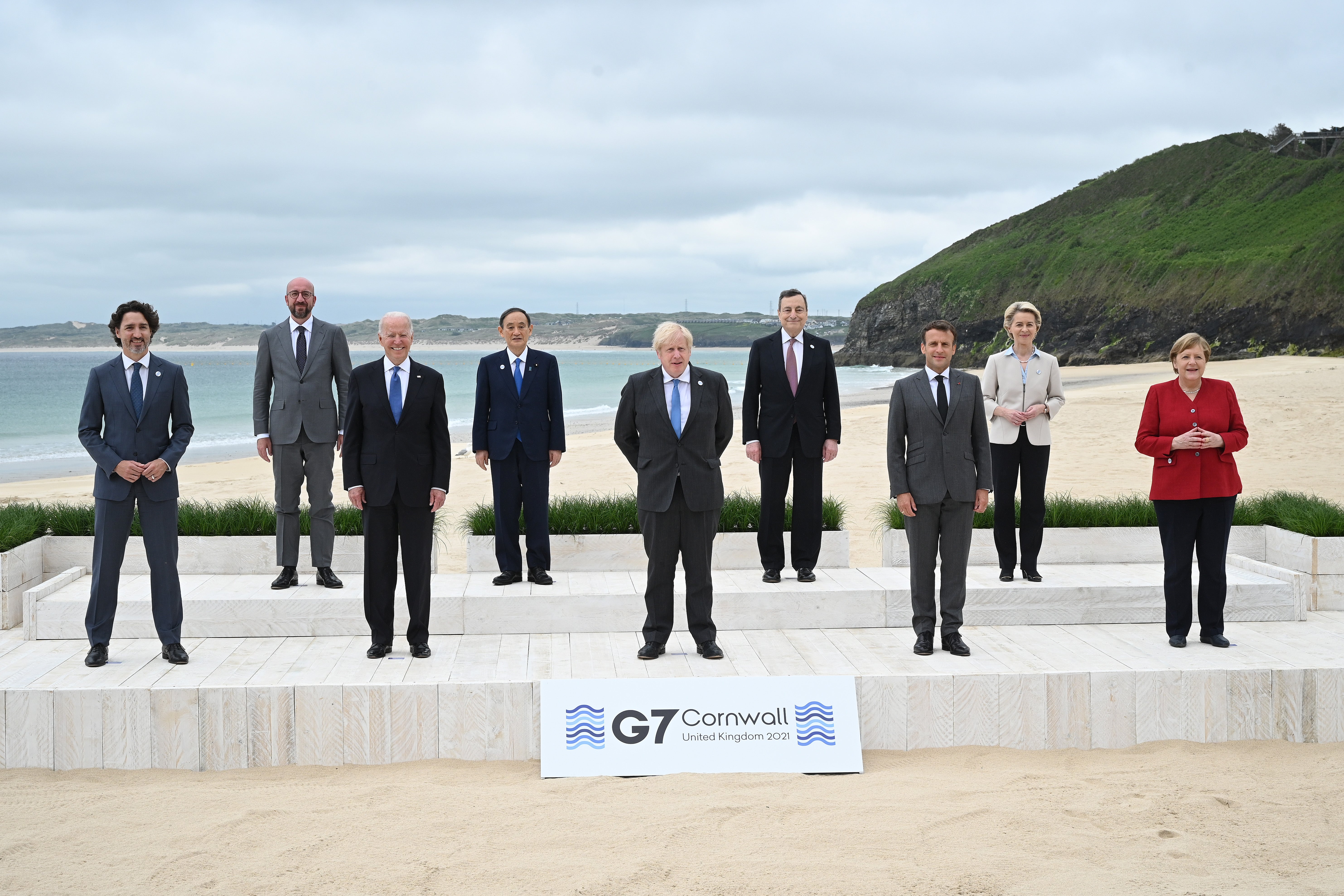Much more has to be done to secure gender equality – but there is cause for hope
The work of the G7 Gender Equality Advisory Council is grounded in the belief that we can make a difference to the lives of women around the world, writes Sarah Sands


Your support helps us to tell the story
From reproductive rights to climate change to Big Tech, The Independent is on the ground when the story is developing. Whether it's investigating the financials of Elon Musk's pro-Trump PAC or producing our latest documentary, 'The A Word', which shines a light on the American women fighting for reproductive rights, we know how important it is to parse out the facts from the messaging.
At such a critical moment in US history, we need reporters on the ground. Your donation allows us to keep sending journalists to speak to both sides of the story.
The Independent is trusted by Americans across the entire political spectrum. And unlike many other quality news outlets, we choose not to lock Americans out of our reporting and analysis with paywalls. We believe quality journalism should be available to everyone, paid for by those who can afford it.
Your support makes all the difference.Character is destiny and the composition of this year’s UK-convened G7 Gender Equality Advisory Council (GEAC) set the tone for our new report. The council was heavy on scientists.
The UK fielded Professor – now Dame – Sarah Gilbert and she was joined by Dr Fabiola Gianotti, the director general of Cern, Dr Ritu Karidhal who is behind India’s Mars mission, professor of chemistry and biology Reiko Kuroda and Dr Denis Mukwege, Nobel Prize-winning gynaecologist.
The discussions we had were pragmatic and evidence based. Dr Mukwege particularly brought to our attention the facts on the ground behind his plea for a more powerful international response to conflict-related sexual violence. He excused himself during two of our meetings in order to perform emergency surgery at Panzi Hospital, which specialises in treating survivors of sexual violence.
Apart from the scientific method, there was a scientific sensibility. In my first conversation with Sarah Gilbert, she described how the making of the vaccine had, as a side effect, uncovered a utopian way of working (apart from the unsustainable hours). The usual politics, hierarchy and career structures which so often work against women were put aside.
Instead, there was true collaboration, with everyone bringing their own expertise and respecting the strengths of their colleagues. The usually overlooked qualities of resilience and perseverance became highly prized. If we can ask the right questions, we will find the right answers.
The question introduced to our group by the Harvard economist Professor Iris Bohnet was a simple one: what works? The timescale of our mission also encouraged us to cut to the chase. We had a much shorter run at it than previous years because the Covid-19 pandemic had consumed all political thinking.
We first assembled in the spring, presented our recommendations to the G7 leaders in June and produced our report by the end of this month. The relationship of the GEAC to the pandemic has been key. We had seen what happened to women during the pandemic. At least one generation of progress was wiped out.
Women and girls were expected to pick up the increased domestic burden and put their own ambitions aside. Millions of girls globally were forced to drop out of school permanently. Violence against women soared. Maternity and reproductive health services were downgraded. With lightning speed and ease, women became second-class citizens again.
GEAC proposed 14 recommendations to protect the education of girls and the employment opportunities for women, and end violence against women and girls. The first principle was that they must be seen and heard. Women can simply vanish from view and we saw how thinly women were spread among the G7 leadership in June. We later saw with devastating effect how the rights of women were removed by the Taliban in Afghanistan. GEAC’s 14 recommendations were a chivvying template to the G7. They were also a pressing cry of solidarity to the women of Afghanistan.
In June, Dr Mukwege, and I addressed the G7 leaders in Cornwall. One of our council members, Jessica Woodroffe, co-chair of W7, asked whether our presence at the G7 made any difference.
I would say that it mattered that we were (virtually) in the room. So often, women are not. We must not be an addendum for we are half of the population. Denis Mukwege’s appeal to leaders that the violation of women as a weapon of war should be regarded as seriously as chemical weapons or landmines was an electrifying moment of moral eloquence. Women’s bodies are the battlefield yet we discount this because they are only women?
We did not lobby for special interests or particular privileges. We simply asked for women to be given the same opportunities and rights as men. We asked for women to have proportionate access to the digital and green revolution. We asked for access to capital and land and education and skills. And we asked for protection from violence and online degradation.
We grasped political opportunity where we found it – we pushed for funding of the Global Partnership for Education, knowing of the prime minister’s interest in girls’ education. But we were also independent enough to condemn the cuts to foreign aid and their calamitous effect on projects which stood up for women and girls.
The GEAC met again in September, still virtually, to add some flesh to the bone and to agree on our legacy. Next year, we hand the baton over to the German G7 presidency. We wanted our report to be both a helpful manual on best practice and a spur to action.
Two of our recommendations demanded a reform of process. G7 foreign and development ministries are considering how to best strengthen the international architecture around conflict-related sexual violence, following Dr Mukwege’s recommendation for a tougher international response. A recommendation championed by Isabelle Hudon, former Canadian ambassador to France, calls for a monitoring mechanism to measure the progress of GEAC’s recommendations.
We are currently in negotiation with international organisations to measure the criteria for this. I had hoped we would have wrapped it up now, but I have learned from scientists that perseverance and resilience are key. As we hand the baton on to Germany, we can say that we spoke up for women and girls this year, at a time when much of the world was not paying attention to them and parts of the world, such as Afghanistan, rendered them invisible.
We produced reasonable, evidence-based, actionable recommendations and examples of best practice which could be taken up by governments and institutions tomorrow without making their lives harder. The prime minister has written an introduction to the GEAC report, in which he talks of our climbing summits with a hand behind our backs, because we have not unleashed the potential of women. The foreign secretary writes that forging alliances with open societies has to be based on recognition of the rights and potential of women.
Our report is an optimistic document, grounded in the belief that we can make improvements, sometimes big, sometimes incremental, and that we must never give up. We hope that Germany will continue the fight as we have done. As Chancellor Merkel put it earlier this year: “All our efforts are about nothing more, but also nothing less, than equal opportunities for men and women.”
Sarah Sands is chair of the G7 Gender Equality Advisory Council and former editor of the Evening Standard and BBC Radio 4’s ‘Today’ programme
Join our commenting forum
Join thought-provoking conversations, follow other Independent readers and see their replies
Comments